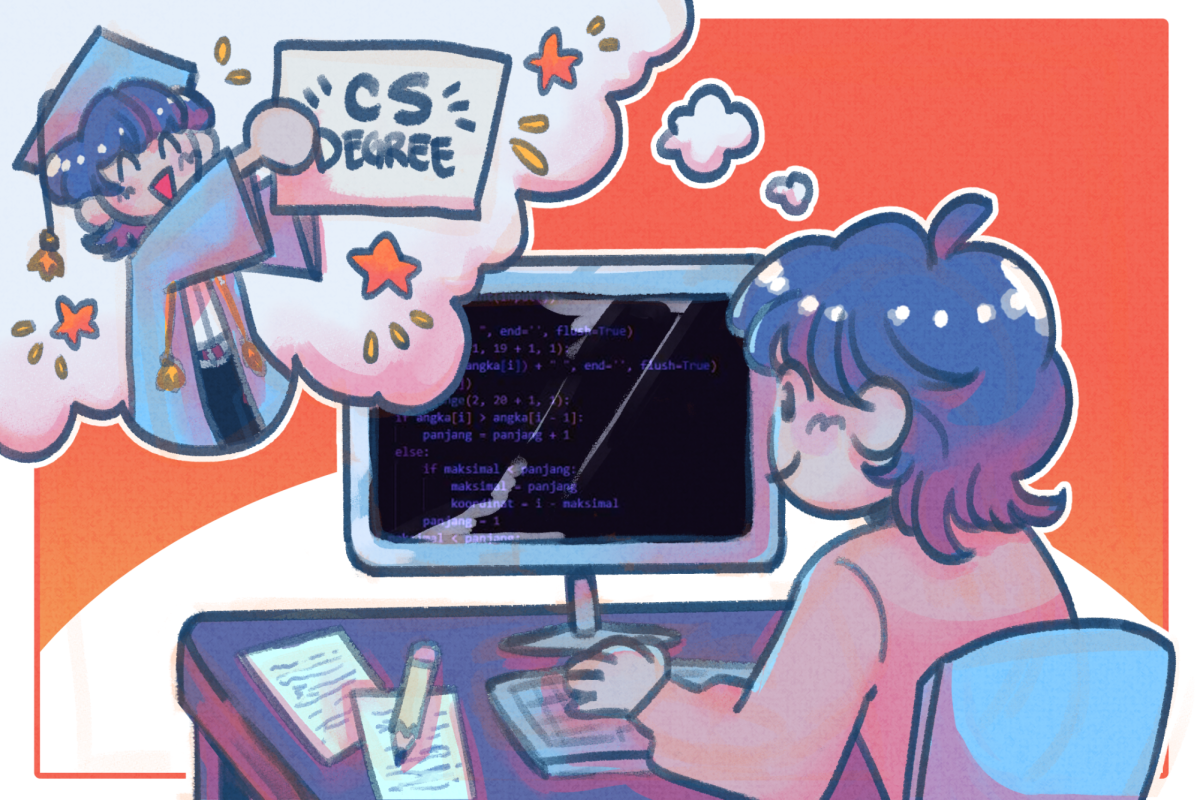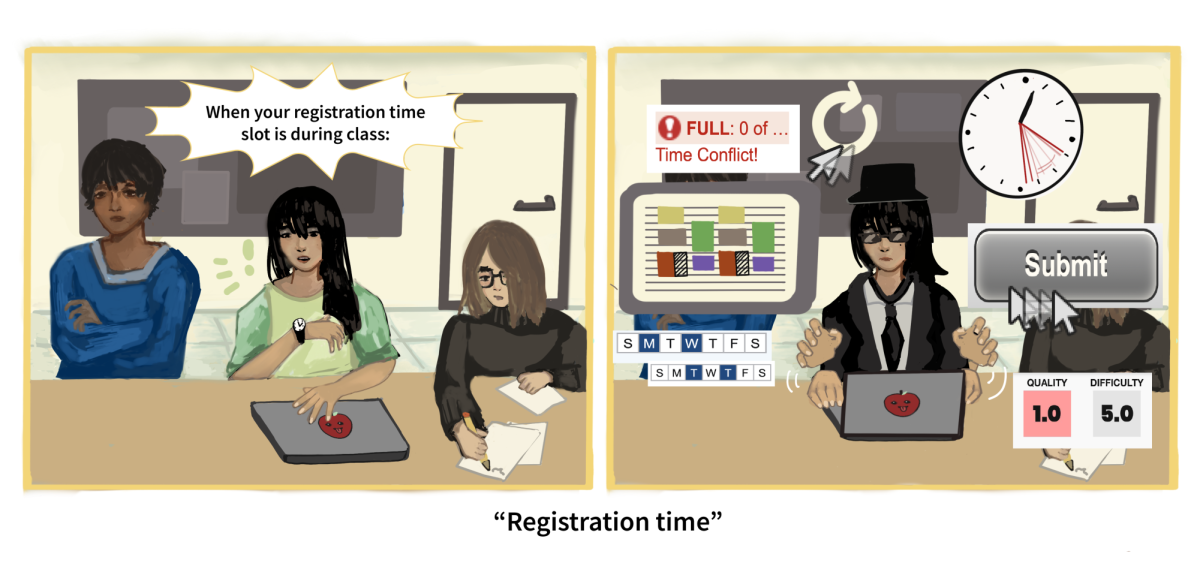Last updated on Dec. 17, 2024 at 09:33 p.m.
Despite grade school curriculums varying across the country, there are always commonalities. Everyone learns math, and everyone is taught English. There may be differences in how students learn to solve equations or in the books assigned to them, but the core principles remain. Meanwhile, one of the world’s biggest professional industries plays a minor role.
A key piece of modern-day society, computer science, is at the heart of numerous things in everyday life. Smartphones, personal computers and the internet all have computer science at their core. Still, computer science is a topic mostly left in the hands of extracurriculars, sparse high school electives and college.
Eunice Mok, sophomore in Engineering, was interested in the subject long before deciding to major in it. Her parents are both engineers, and her father is a computer scientist. Mok said they were both interested in seeing if she would enjoy it as well.
“When I was in fifth grade, they enrolled me in this camp where you basically can go into the code of Minecraft and change the game and add your own things,” Mok said. “I really liked it.”
Get The Daily Illini in your inbox!
Mok’s familiarity with computer science grew from there and largely outside the classroom.
“My mom just kept on kind of putting me in different coding camps,” Mok said. “I learned different languages, learned different skills … I did take a computer science class in middle school. I really enjoyed it, so if they offered more, I definitely would have taken it. In high school as well, I think if there were more CS electives, that would have also been a really nice option.”
Mok said that when she decided to major in computer science and got to the University, her background knowledge was helpful in the first few classes. However, she said the curriculum quickly progressed into new territory.
“It definitely helped me in CS 124, the very first freshman class you take,” Mok said. “But for some of the later classes, it definitely delves into more algorithms and things that you’ve never seen before. So, I don’t think my background prepared me for that. But in terms of just getting the fundamentals and knowing how to code, it was helpful.”
While offering more opportunities in grade school via electives may benefit interested students, computer science professor Brad Solomon said forcing it on all students may have unintended consequences.
“I think everyone could benefit from some understanding of computer science,” Solomon said. “But I also am aware that not everyone actually wants to program. For the people who are not interested in programming, a programming class is truly painful. The trick is convincing them that there is meaning or importance, or that one day you might get a use out of knowing how to code a basic function.”
Even if it were possible to ensure all students saw the value of computer science, Solomon thinks it could lead to the field itself thinning out: a higher overall knowledge of programming in the public, but more of it used interdisciplinarily than solely within computer science.











